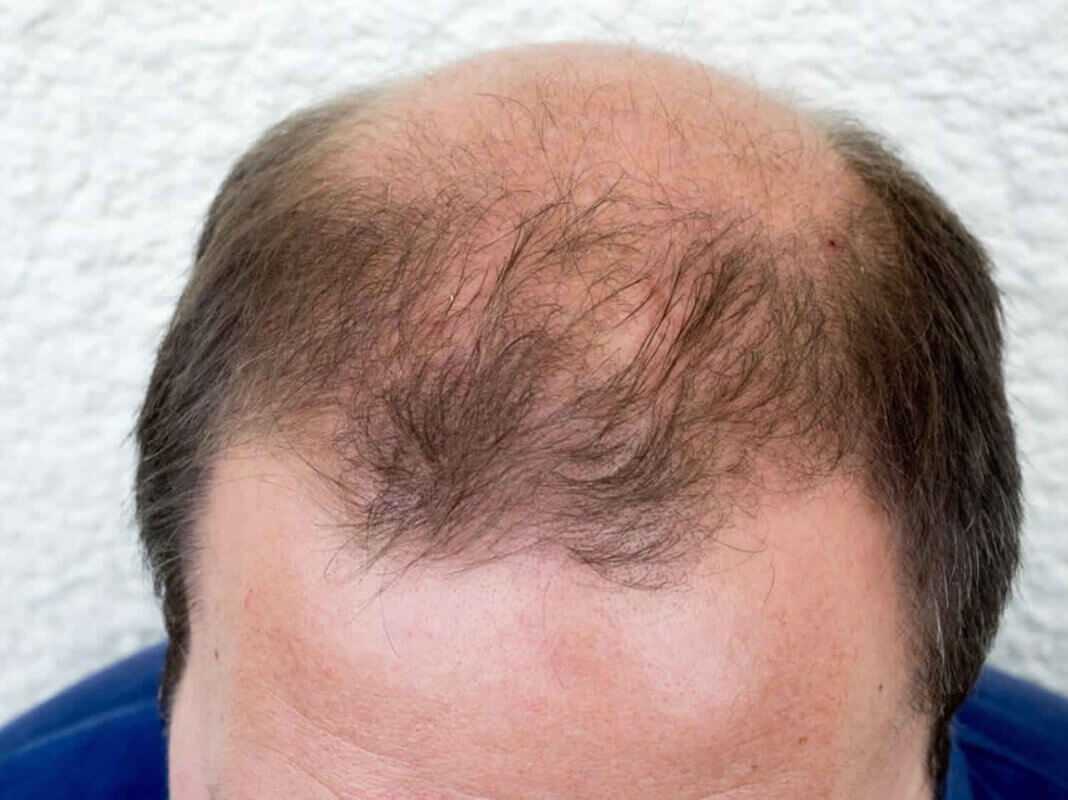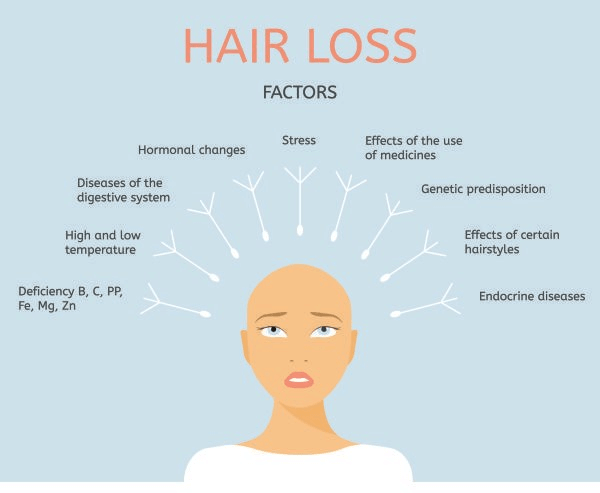Nutrition
What is Your Hair Telling You About Your Overall Health?
Your Hairs Giving You Clues About Your Health But Are You Listening?
You might think about your hair every day – like when you have a bad hair day or when you get a nice blowout.
You might also look at your favorite celebrity and want to try out their new hairstyle.
But did you know that your hair can give clues about your health?
Sometimes changes in how your hair looks, feels, or grows can mean you have a health problem.

1) Premature Graying – Stress
Observing presidential candidates over different campaigns has revealed a connection between stress and graying hair.
A study conducted on mice, published in the journal Nature, supports this notion, suggesting that chronic stress can cause DNA damage and reduce the number of pigment-producing cells in hair follicles.
Additionally, another type of stress, known as oxidative stress, can also impact pigment-producing cells.
While going gray is a natural part of aging, as hair follicles produce less color over time, genetics also play a role.
Solution: Exercise at least 3x per week. Practice deep breathing and meditation.

2) Brittle Hair – Cushing’s syndrome
Cushing’s syndrome, a rare condition caused by excessive cortisol, the body’s primary stress hormone, can cause brittle hair as one of its symptoms. However, there are more noticeable symptoms, including high blood pressure, fatigue, and back pain.
Treatment for Cushing’s syndrome may involve altering the dosage of medication, such as glucocorticoids, which are steroids used to treat inflammation related to various illnesses.
In some cases, individuals may require surgery, chemotherapy, or radiation therapy to address the adrenal gland’s excessive production of cortisol.
Solution:
As Cushing’s syndrome is a medical condition caused by excessive cortisol, a natural solution to it is not available. However, individuals can adopt lifestyle changes to help manage the symptoms associated with the condition. These may include engaging in regular exercise, following a balanced and healthy diet, and reducing stress through activities such as meditation and yoga.

3) Hair Thinning – Thyroid Disease
A condition characterized by insufficient production of thyroid hormones may experience increased hair shedding and changes in hair appearance.
About 4.6 percent of people aged 12 and over in the United States have hypothyroidism, with most cases being mild.
The condition can cause hair thinning and other symptoms such as fatigue, cold intolerance, joint and muscle pain, facial swelling, and weight gain.
A diagnosis of hypothyroidism is made through a thyroid-stimulating hormone (TSH) test, and treatment involves taking thyroid medication.
In addition to hair thinning, certain thyroid disorders increase the risk of an autoimmune hair loss condition called alopecia areata.
This type of hair loss results in sudden, round patches of hair loss and is caused by the immune system attacking the hair follicles.
Solution:
Some studies suggest that certain dietary changes and supplements may support thyroid function and promote hair health.
For example, iodine-rich foods such as seaweed, fish, and dairy products may be beneficial for thyroid function, while selenium, zinc, and iron may also be important for thyroid health.
Biotin and vitamin D supplements may also promote hair growth and thickness

4) Hair Shedding – Anemia:
If you’re experiencing increased hair shedding, it could indicate low iron stores or anemia, which may require testing.
It is more common for people who are vegetarian or women with heavy periods, as both increase the risk of low iron.
The reason why low iron can cause hair loss isn’t fully understood, but it’s crucial for many biological and chemical reactions, including hair growth.
If your doctor confirms iron deficiency, increasing your intake of iron-rich foods or taking supplements may help with hair loss.
Solution: Eat Eggs Yolks and take Omega-3 Pharmaceutical-grade Fish Oil per body weight
Omega 3 Pharmaceutical-grade Fish Oil
5.)Hair Loss-Protein Deficiency
Hair thinning and loss can be linked to a lack of protein, as protein is essential for hair health and growth.
Adults generally require 0.8 grams of protein per kilogram of body weight.
However, many people may have difficulties consuming enough protein and may require medical supervision to manage their protein intake.
Solution: Consume Grass Fed Protein Power every day.

What does it all mean?
Protein plays a crucial role in promoting healthy hair growth and maintenance.
Hair is primarily made up of keratin, which is composed of amino acids that are derived from protein.
Consuming grass-fed protein can provide the necessary amino acids to help stimulate hair growth, prevent hair loss, strengthen hair, and increase shine.
Additionally, grass-fed protein is a healthier option than conventionally raised meat, as it is higher in nutrients such as omega-3 fatty acids and vitamins A and E, which are essential for healthy hair.
By incorporating grass-fed protein into your diet, you can help to improve the health and appearance of your hair.
New Zealand Grass Fed Protein


